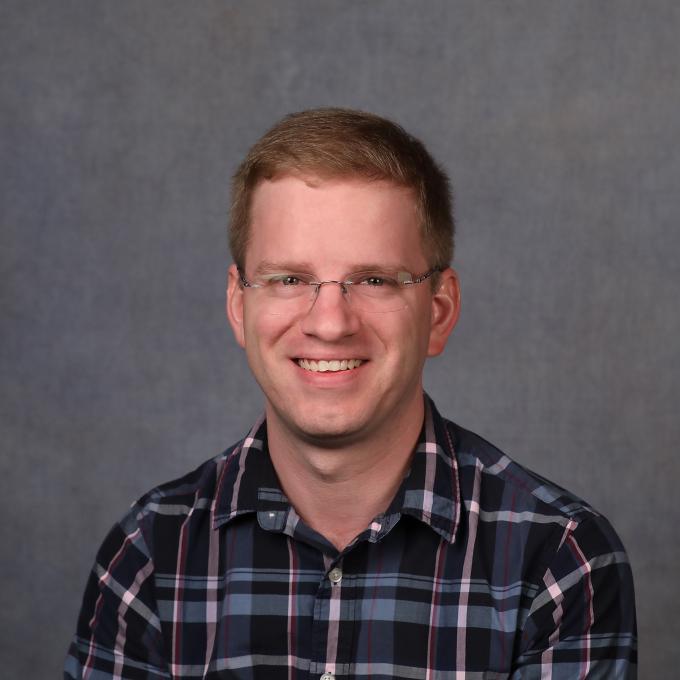Bryan Thurtle-Schmidt Assistant Professor of Biology
Education
- Postdoctoral University of California, San Francisco
- Ph.D. University of California, Berkeley
- B.S., B.A. Indiana University at Bloomington
Areas of Expertise
- Biochemistry
- Structural Biology
Background
I am a biochemist interested in the relationship between protein structure and function. In particular, I focus on large proteins I like to think of as "molecular machines."
I have worked on proteins ranging from the tiny confines of the nucleus to the outer reach of the plasma membrane, with functions ranging from the cutting and re-arranging of DNA to the carrying of small molecules across the cell membrane. What these diverse proteins share in common is their possession of multiple regions that must move in precise harmony with one another to carry out a complex function. I've explored these motions and their relationships with protein function through a combination of structural biology, biochemistry and genetics.
Biochemistry is a field that is advancing rapidly, and in my courses we keep up-to-date with advances in the scientific literature. My courses combine interactive lectures with discussions of journal articles and investigative labs designed to resemble genuine laboratory research.
Research
Bacteria and the viruses that infect them, termed bacteriophages or simply phages, are locked in a never-ending evolutionary battle. To protect themselves against phages, bacteria have evolved numerous anti-phage defense systems. Some, like restriction-modification systems or CRISPR, have been well characterized and harnessed for biotechnological and therapeutic applications. There exist many other anti-phage defense systems and that most of them remain poorly understood. Some recently discovered anti-phage defense systems use Overcoming Lysogenization Defect (OLD) proteins, which possess protein domains that can cleave DNA and hydrolyze ATP. Our long-term goal is to research the mechanisms by which OLD proteins contribute to anti-phage defense. In addition to the biotechnological opportunities studying anti-phage defense systems has brought, deepening our understanding of such systems could, in principle, also help set the stage for the development of potential therapeutic interventions such as phage therapy.
Teaching
BIO 113 Integrated Concepts in Biology I (with lab)
BIO 303 Biochemistry (with lab)
BIO 394 Molecular Machines
